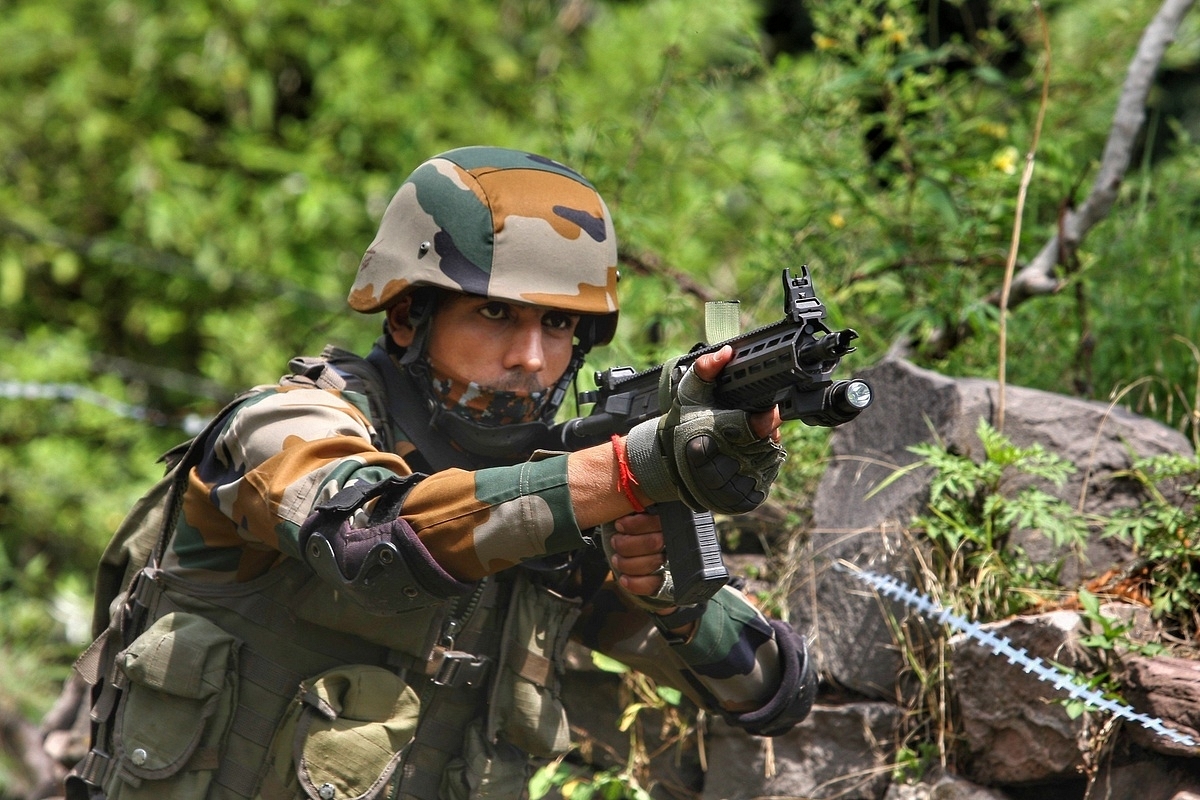News Brief
Government Reverses Decision On Army Withdrawal From J&K Following Recent String Of Terror Incidents in Poonch-Rajouri

Indian Army personnel from White Night Corps armed with a Sig 716i, 2021. (PRO Defence Jammu/Wikipedia)
The government of India (GOI) has decided to abandon its plan to withdraw army from Jammu and Kashmir, in light of the recent terror incidents in Poonch-Rajouri region of Jammu.
Earlier in February 2023, the GOI was planning to reduce the number of Rashtriya Rifles units in Jammu and Kashmir and fill the resultant void using Jammu and Kashmir Police (JKP) and Central Armed Police Forces (CAPFs).
However, in light of the recent string of terror incidents in the Poonch-Rajouri region, that saw deaths of 10 army soldiers including four from Special Forces and seven civilians in two separate terror incidents, and the upcoming G-20 Tourism Summit scheduled on May 22-24, has forced the government hand to abandon the force reduction plan.
Army commands three Rashtriya Rifles Force in the Jammu region: 'Delta Force' manages Doda, 'Romeo Force' takes responsibility for Rajouri and Poonch, while 'Uniform Force' maintains Udhampur and Banihal areas.
The original plan involved withdrawing forces from Anantnag and Kulgam, gradually transitioning the responsibility to the Jammu and Kashmir Police and the Central Armed Police Forces (CAPFs).
Now, the proposal has been put on hold indefinitely due to the current situation and terrorist killings, according to a report by ET.
According to reports, it is believed that two Lashkar-e-Toiba terrorist groups are operating in the Kandi forests of Rajouri, since 2021. The fact that the two terrorist groups have been operating in the area since 2021, without being flushed out is a cause for concern.
As a response, the government has unveiled new plans to strengthen the second tier of the anti-infiltration grid, including the addition of over six hundred posts within the Jammu and Kashmir Police.
The first-tier of the anti-infiltration grid is manned by the army and the Border Security Force (BSF), while the second-tier, by the J&KP and CAPFs.
The army also plans to increase the tenures of the field commanders, particularly those who are engaged in counter-insurgency operations, from the earlier one year to more than 15 to 18 months.
This will help tackle the 'playing-it-safe' attitudes of the field commanders deployed in the terror-prone zones, as well. These measures are part of ongoing efforts to improve the effectiveness of anti-insurgency operations.
Support Swarajya's 50 Ground Reports Project & Sponsor A Story
Every general election Swarajya does a 50 ground reports project.
Aimed only at serious readers and those who appreciate the nuances of political undercurrents, the project provides a sense of India's electoral landscape. As you know, these reports are produced after considerable investment of travel, time and effort on the ground.
This time too we've kicked off the project in style and have covered over 30 constituencies already. If you're someone who appreciates such work and have enjoyed our coverage please consider sponsoring a ground report for just Rs 2999 to Rs 19,999 - it goes a long way in helping us produce more quality reportage.
You can also back this project by becoming a subscriber for as little as Rs 999 - so do click on this links and choose a plan that suits you and back us.
Click below to contribute.
Latest